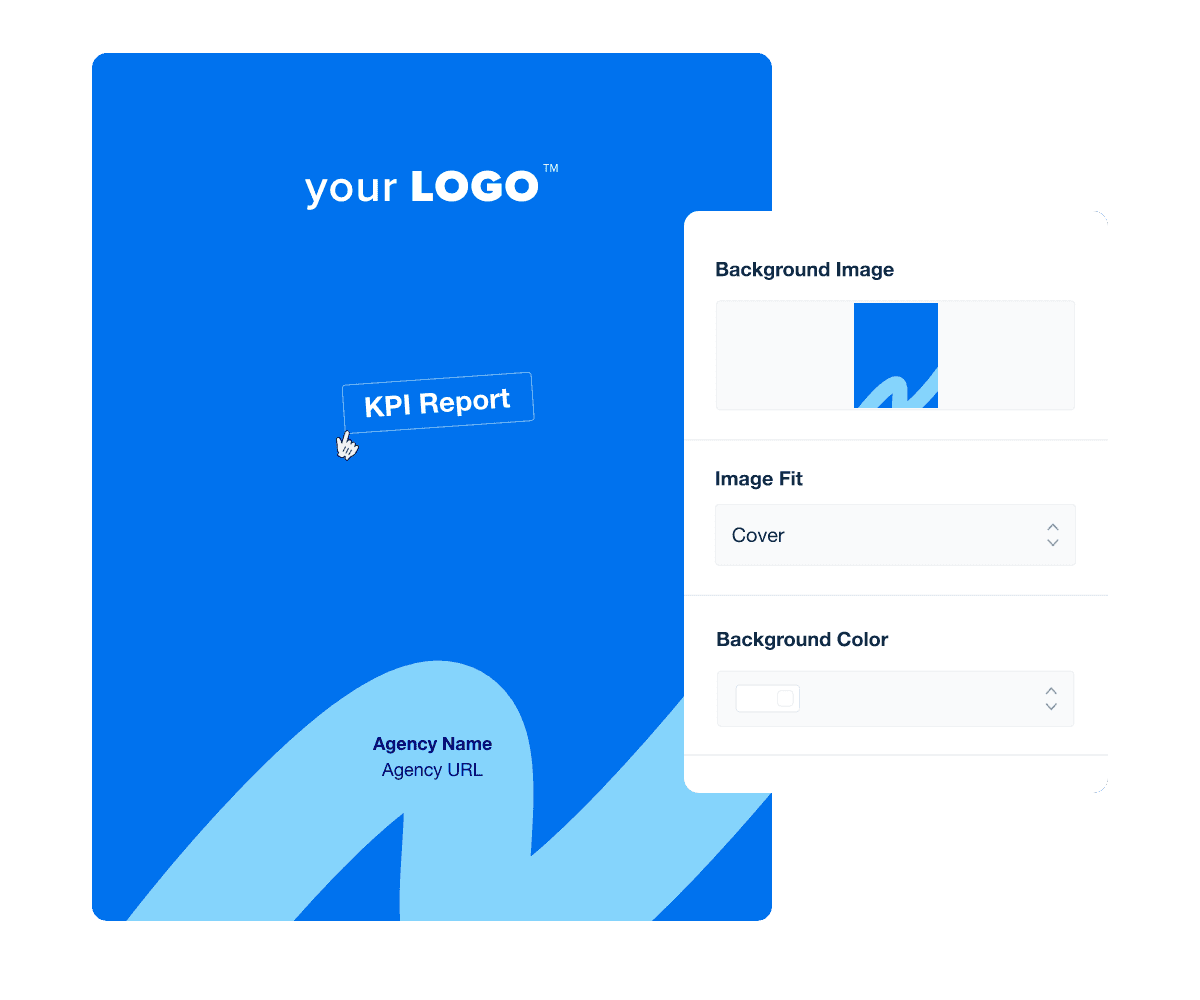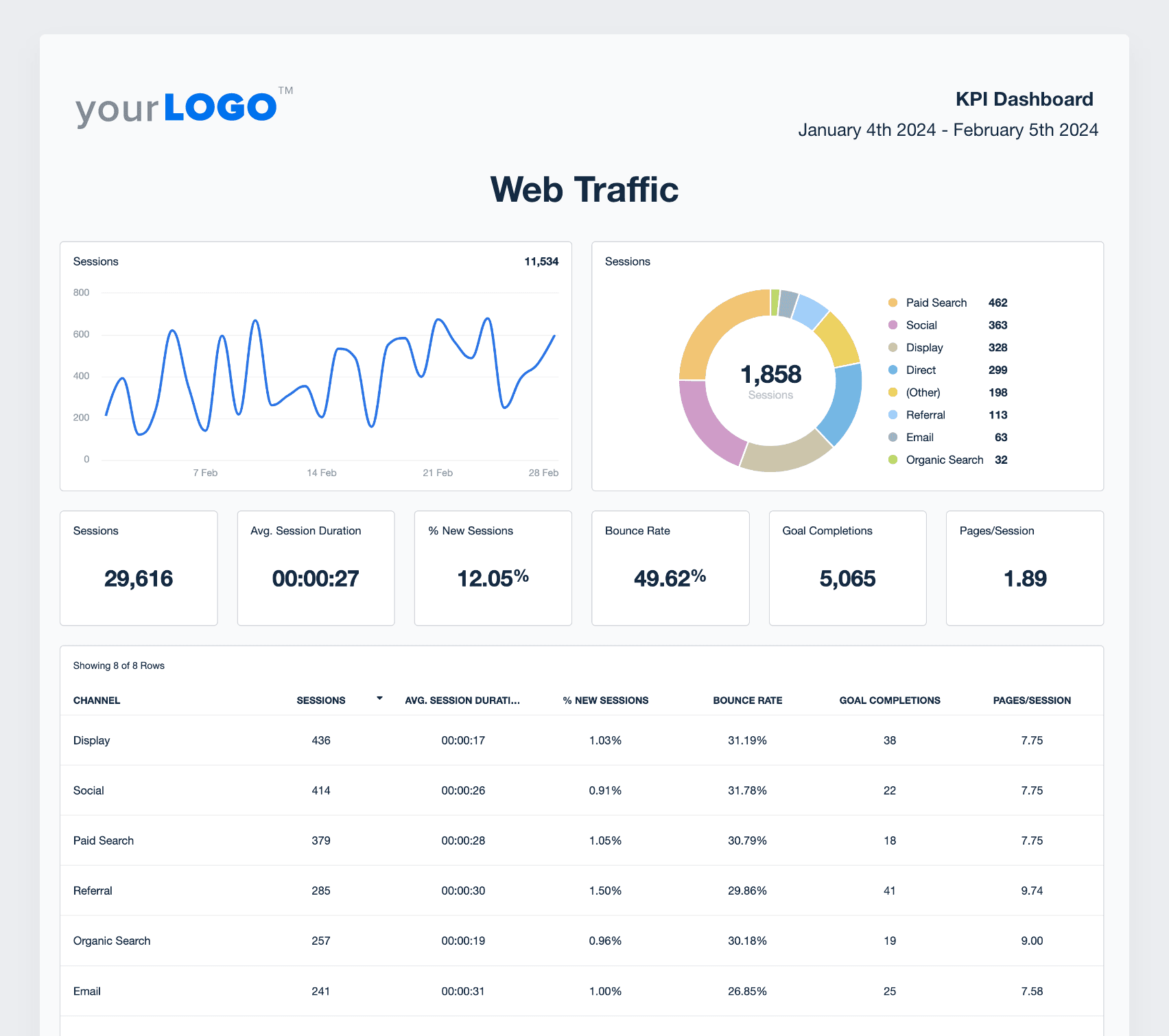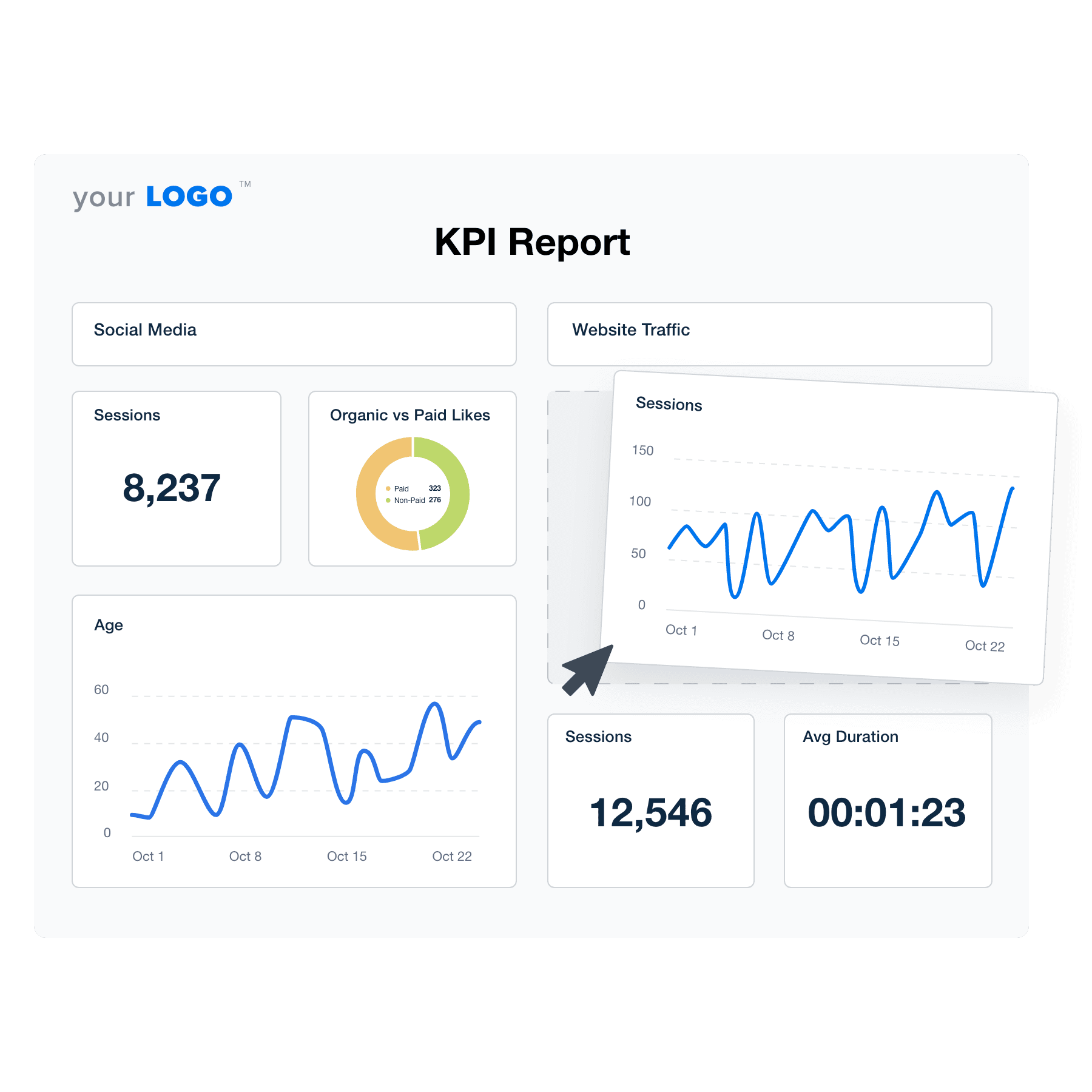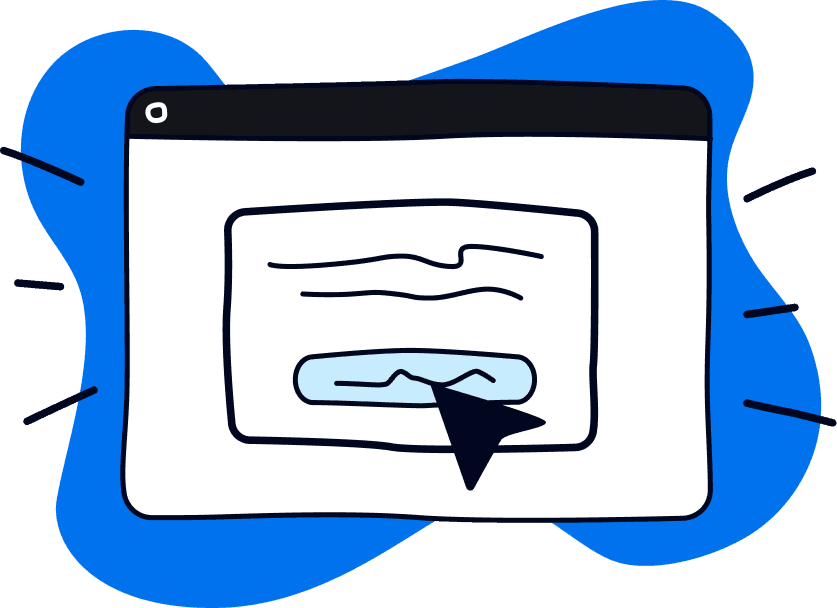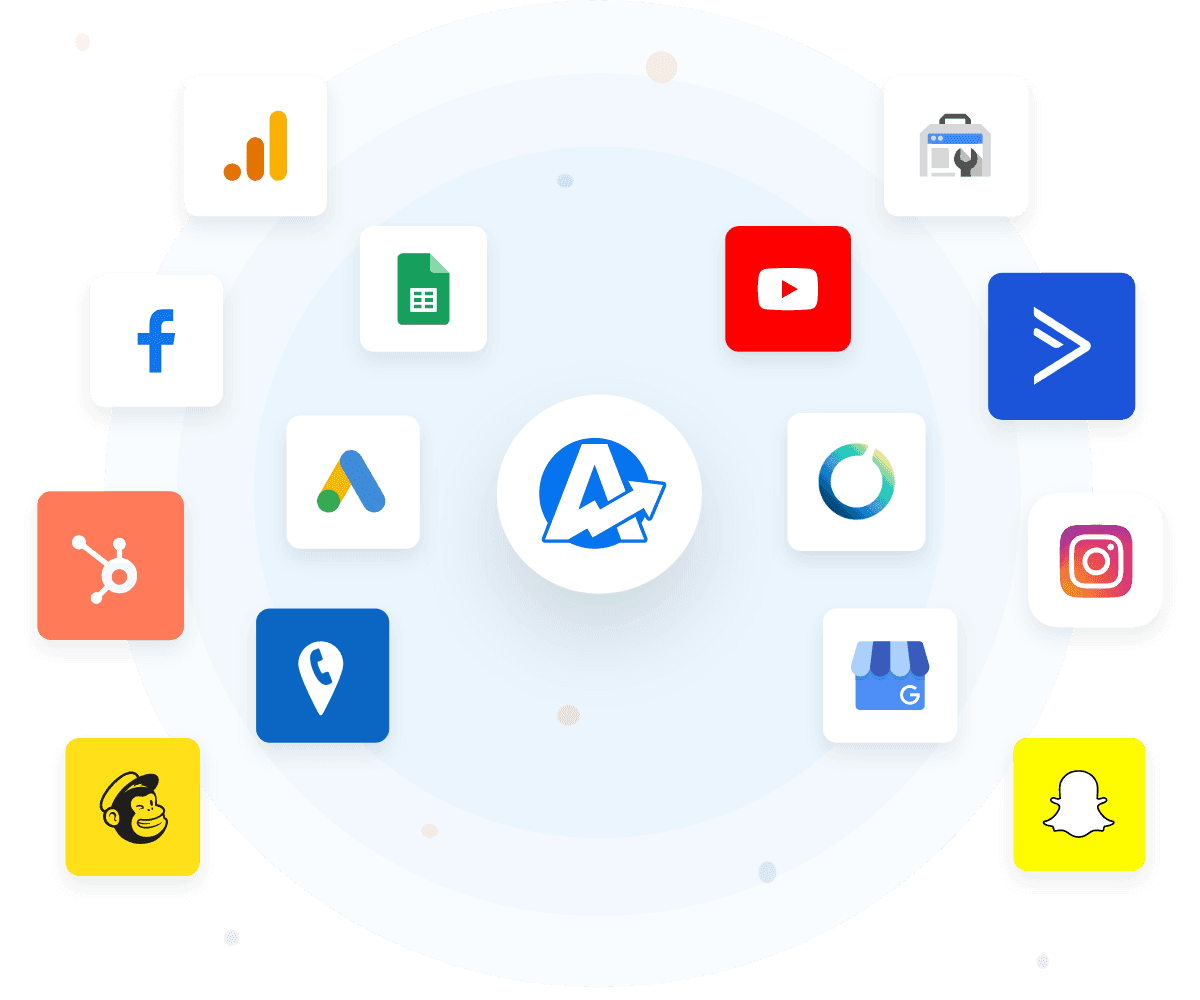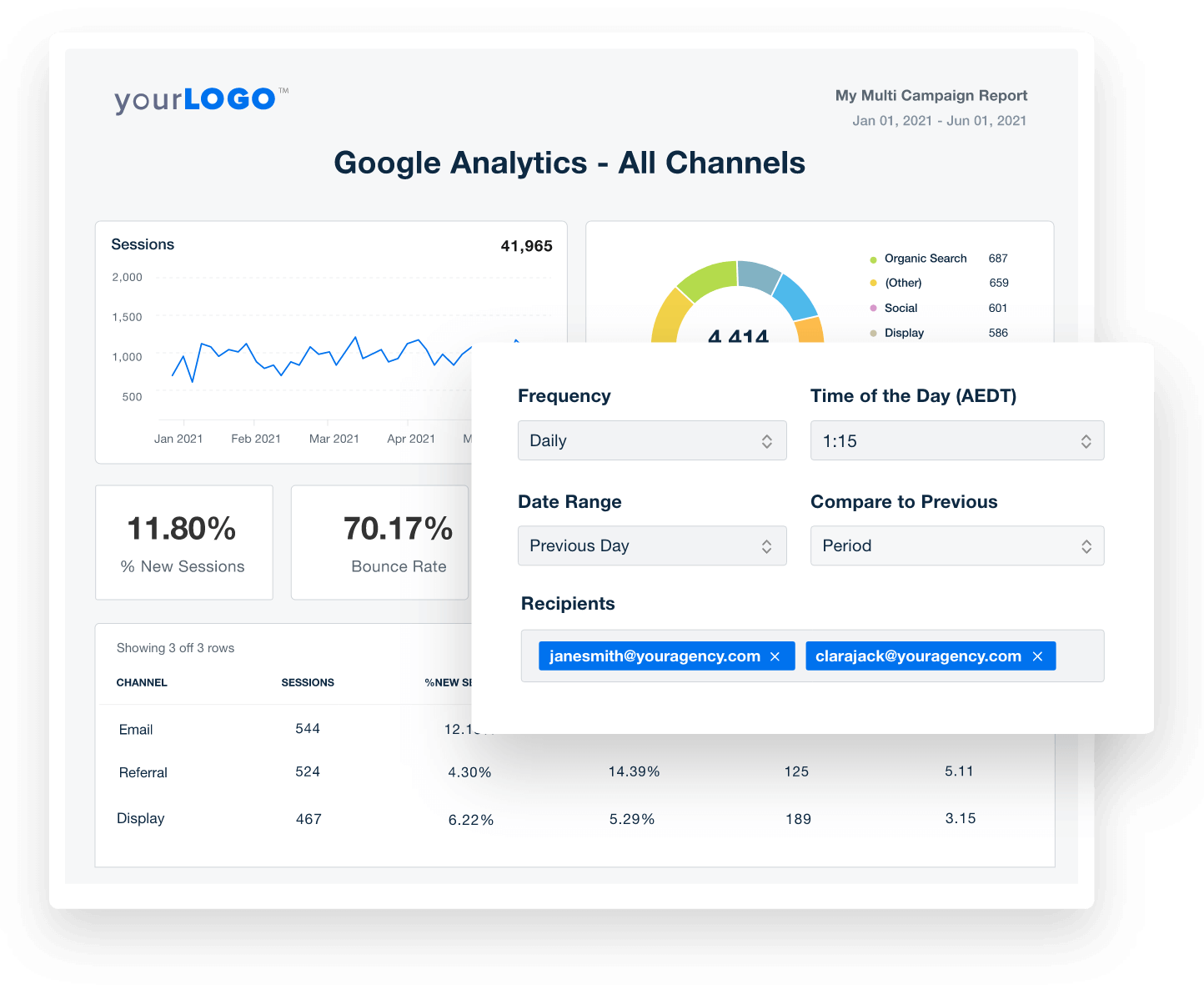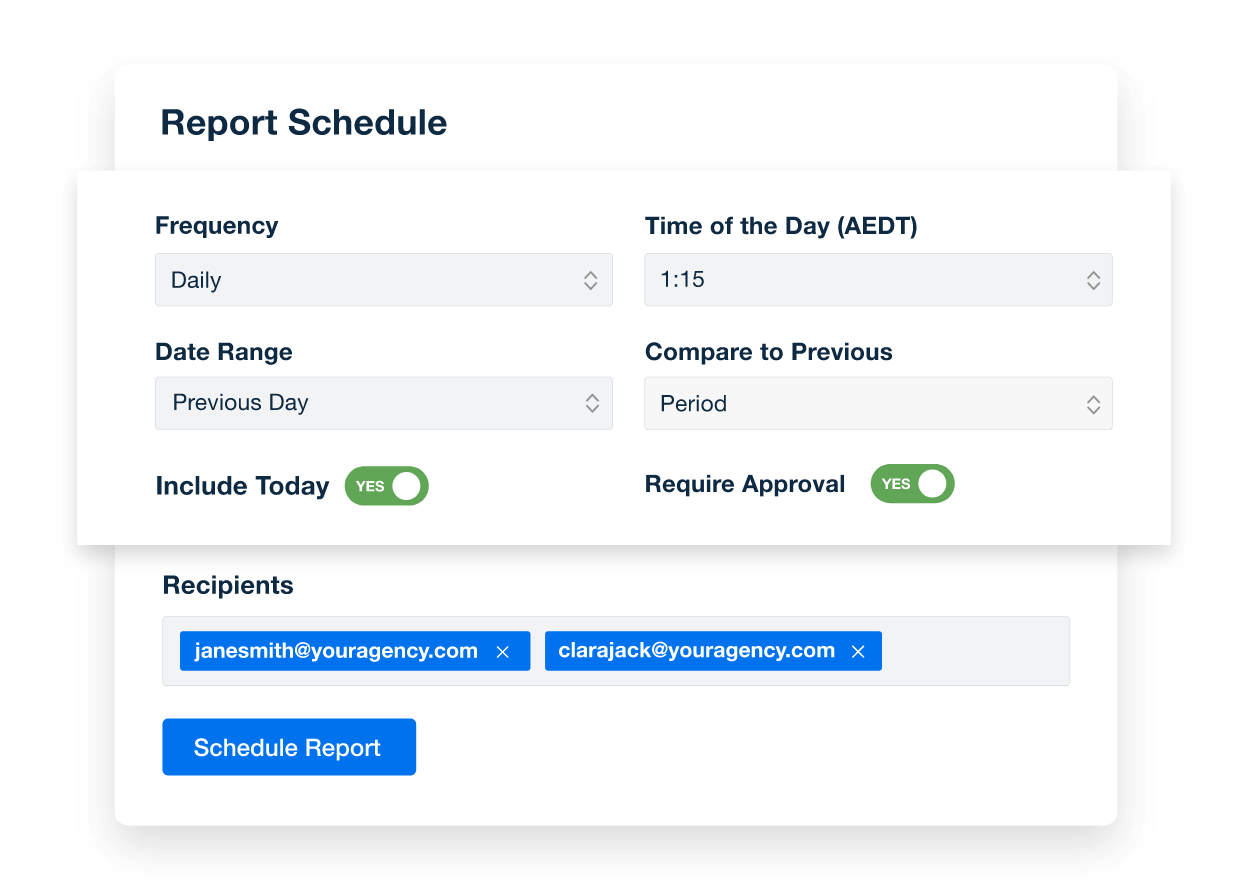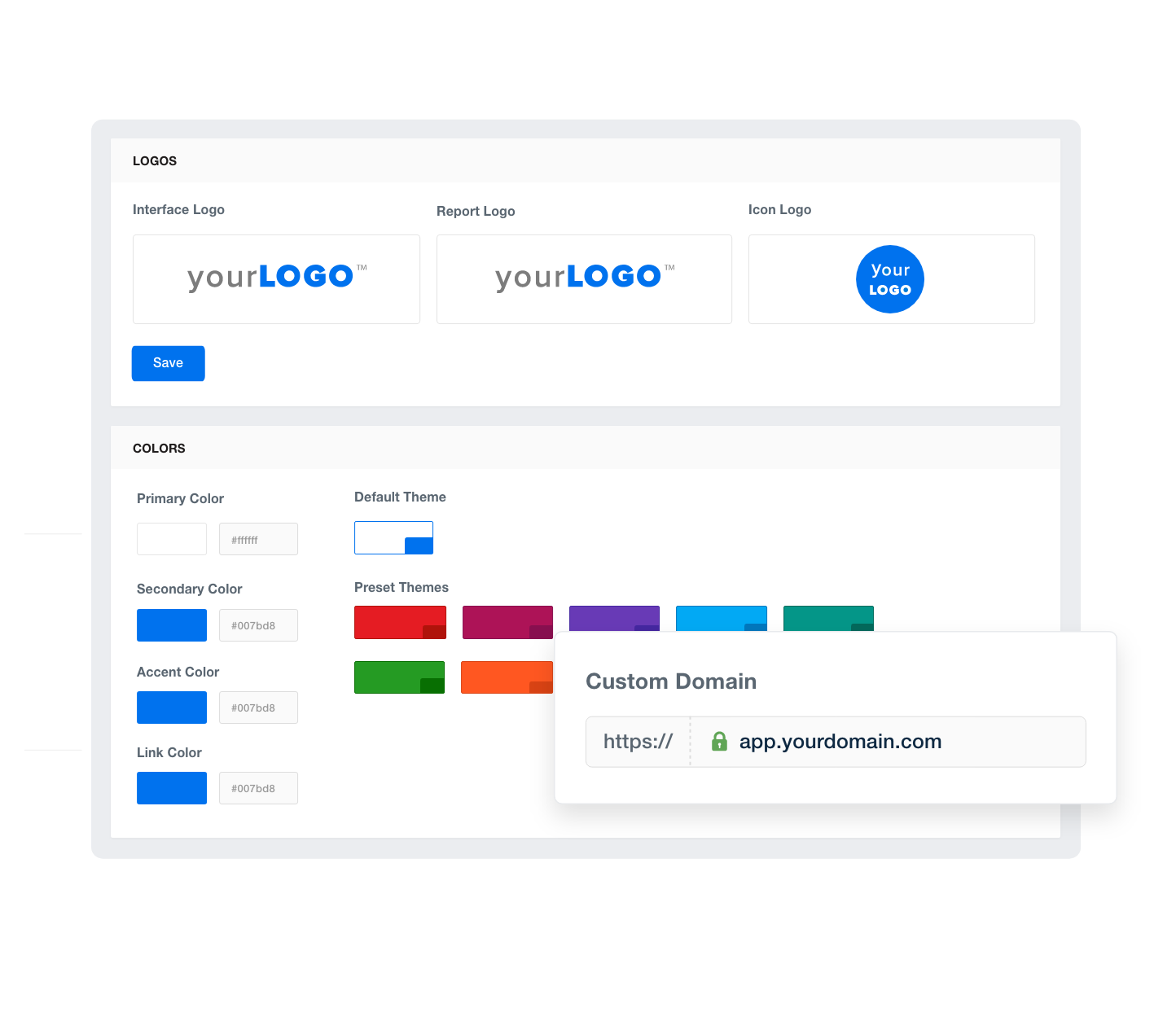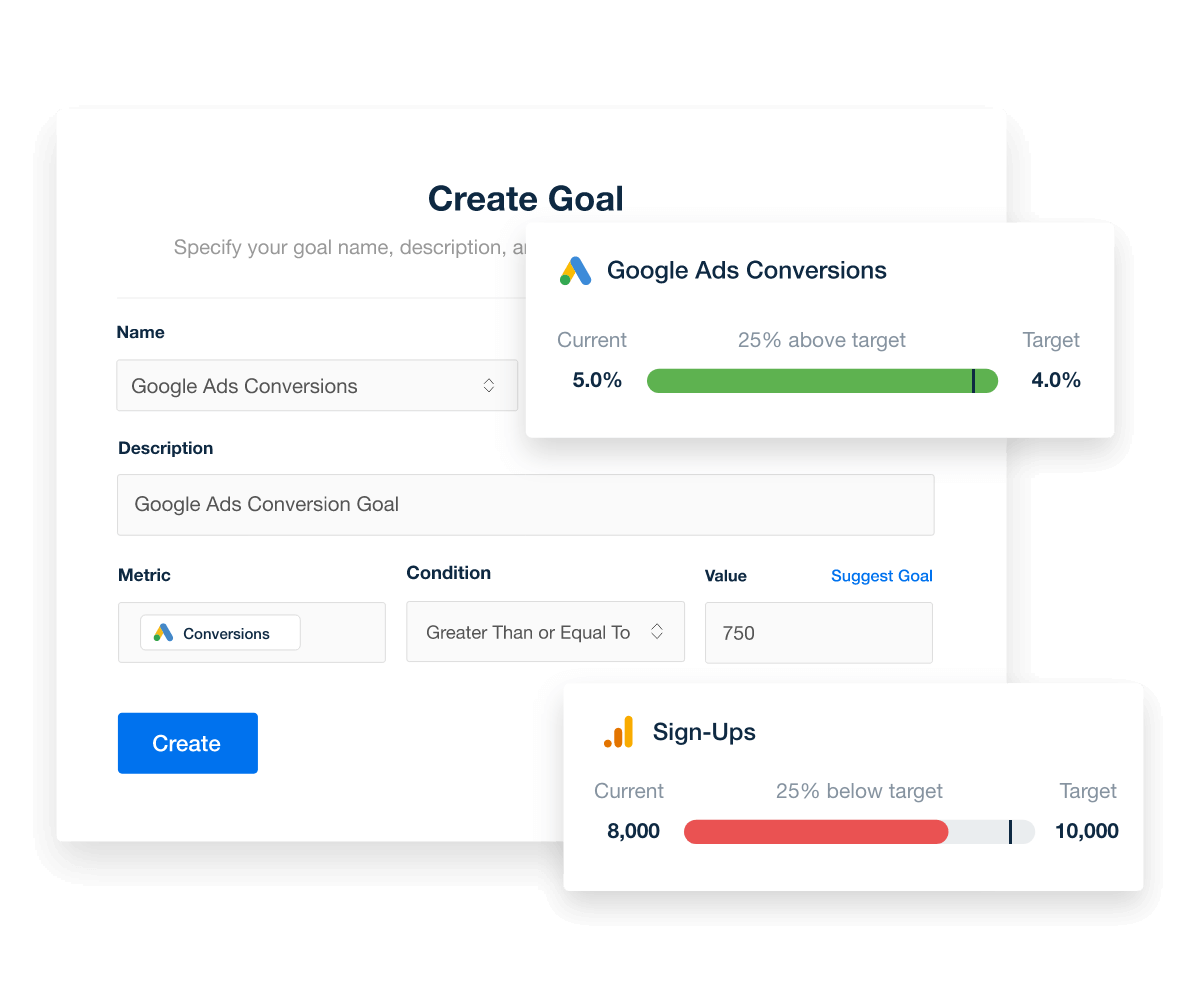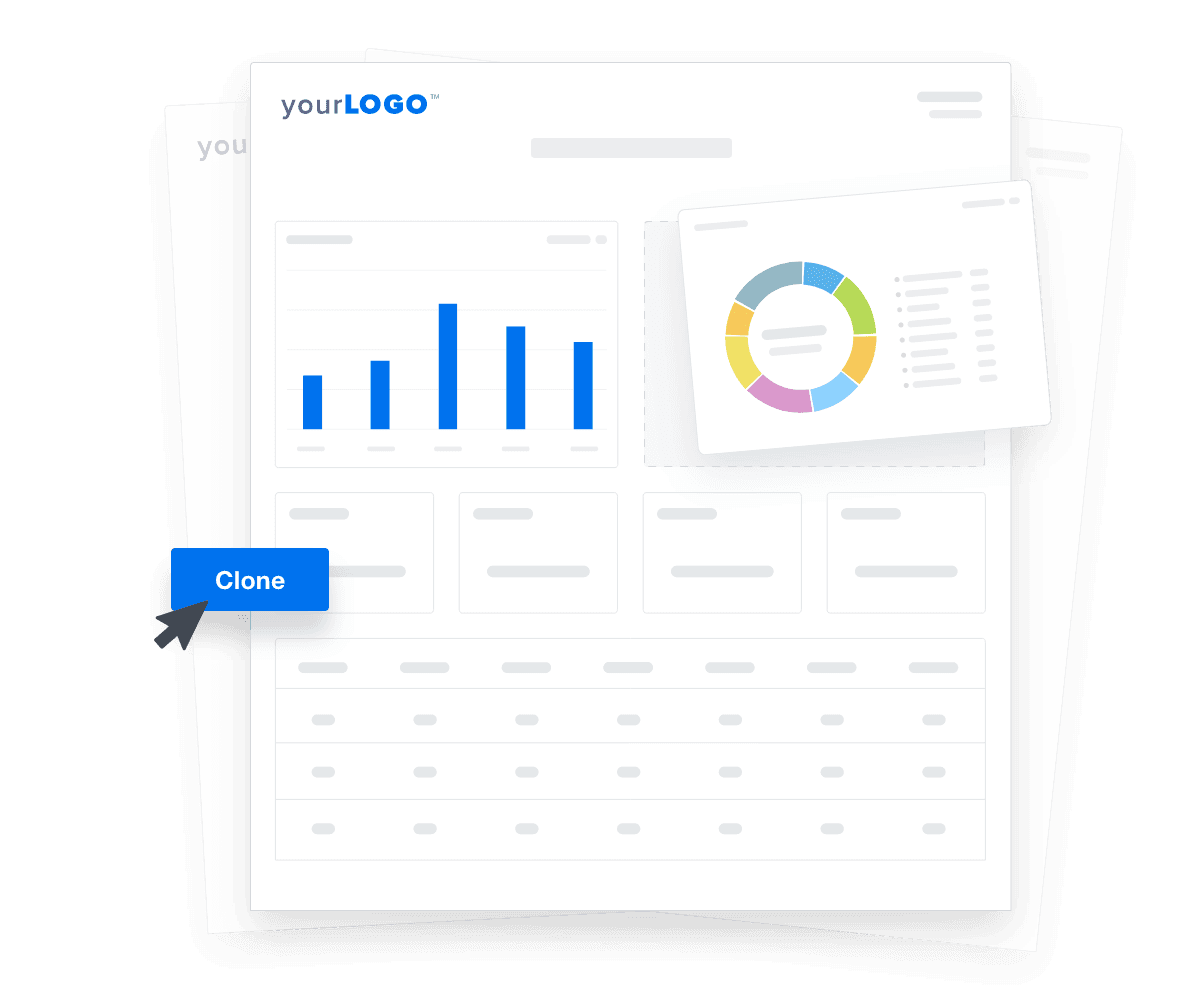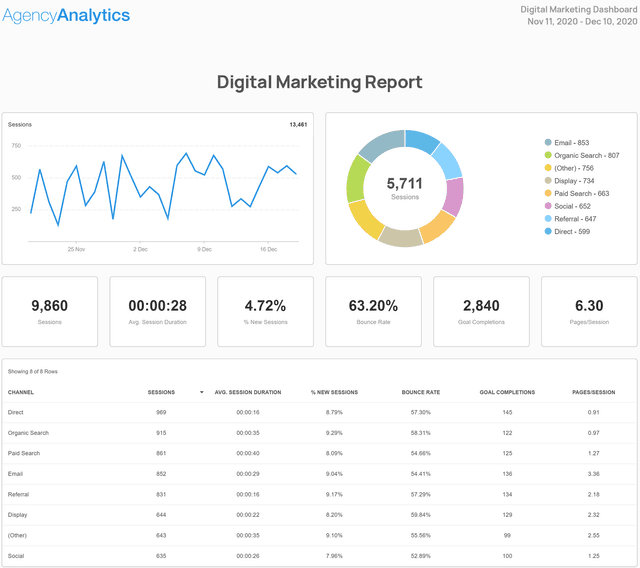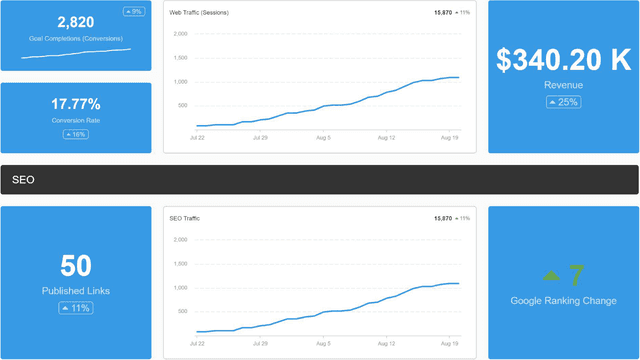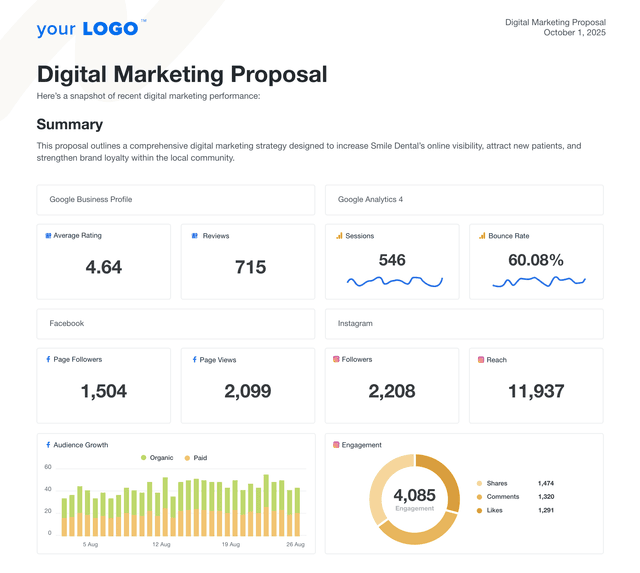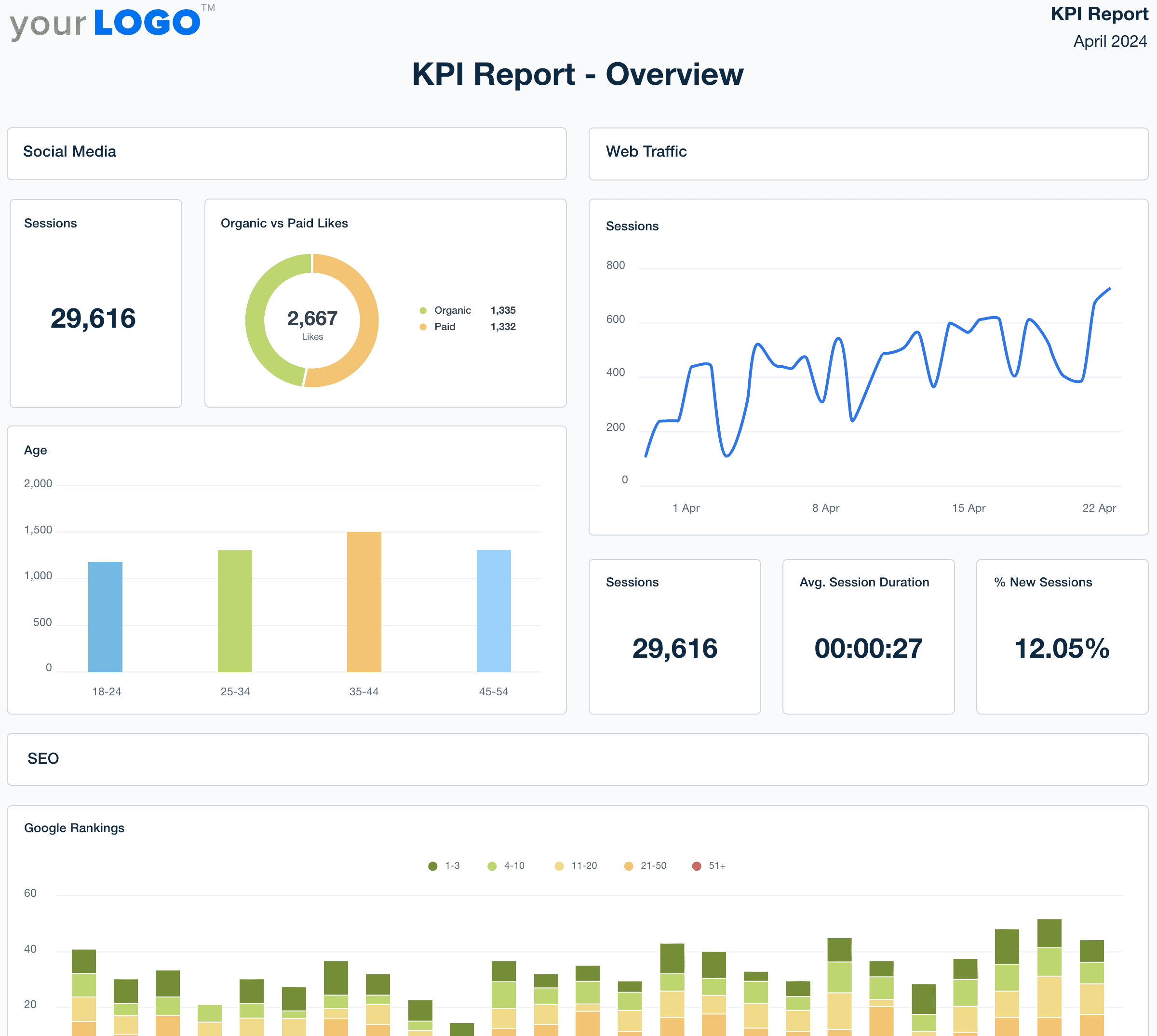
KPI Report Template for Clear, Data-Driven Insights

Customizable KPI Report Templates for Clear, Consistent Client Reporting
Bring all your client’s key performance metrics into one structured, easy-to-read report. Customize each template to focus on the KPIs that matter most, providing clarity and consistency across every marketing campaign.
Standardize reporting to eliminate confusion, improve collaboration, and surface opportunities faster. With automated data from 80 marketing platform integrations, your team spends less time on manual reporting and more time driving results.
Custom KPI Reports as Unique as Your Agency
Streamline Your Reporting
Instantly Access All Your Clients’ KPI Data
Stop juggling between platforms or wrestling with spreadsheets—capture a snapshot of each client's campaign performance with {{integration count}} marketing platform integrations and data points available in one centralized location.
Track progress with KPI dashboard templates and optimize campaigns to identify opportunities faster, deliver tailored insights, and strengthen client relationships.
8 Key Sections Included in the KPI Report Template
